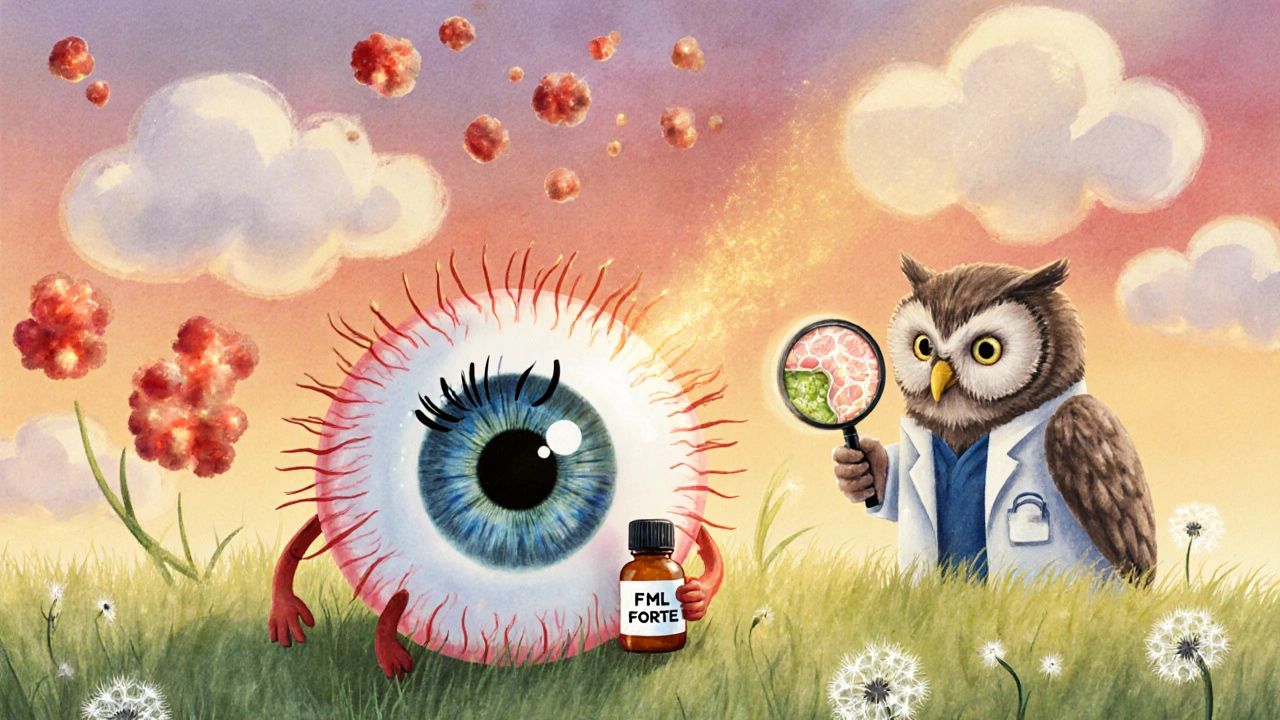Corticosteroid Eye Drops: What They Are, How They Work, and Alternatives
When your eyes are red, swollen, or burning from inflammation or allergies, corticosteroid eye drops, a type of prescription medication that reduces inflammation by suppressing the immune response in the eye. Also known as steroid eye drops, they’re often the go-to for conditions like uveitis, allergic conjunctivitis, or post-surgery swelling. These aren’t your average over-the-counter drops—they’re powerful, fast-acting, and meant for short-term use under a doctor’s watch.
But here’s the catch: using them too long or without supervision can raise your eye pressure, cause cataracts, or even lead to serious infections. That’s why they’re never a first-line fix for simple dryness or minor irritation. eye inflammation, a broad term covering swelling from allergies, infections, or autoimmune reactions is the main target, but not all inflammation is the same. Some cases respond better to antihistamine drops, while others need non-steroidal anti-inflammatories. ocular steroids, the class of drugs that includes corticosteroid eye drops used specifically in the eye come in different strengths—loteprednol, prednisolone, dexamethasone—each with slightly different risks and uses. Your doctor picks based on how bad the swelling is, how long it’s been going on, and whether you’ve had eye issues before.
Many people don’t realize these drops aren’t meant for daily, long-term use. Once the flare-up fades, your doctor will taper you off or switch you to a safer option. If you’re using them for chronic allergies, you might be better off with mast cell stabilizers or combination antihistamine/mast cell blocker drops. For autoimmune-related eye issues, other immunosuppressants might be more appropriate. The goal isn’t just to kill the inflammation—it’s to do it without trading one problem for another.
Below, you’ll find real comparisons of treatments that either replace corticosteroid eye drops or work alongside them. You’ll see what works for seasonal allergies, what helps after eye surgery, and which options avoid the side effects that come with long-term steroid use. No fluff. Just clear, practical info to help you understand what’s really going on with your eyes—and what to ask your doctor next.
Compare FML Forte (Fluorometholone) with Alternatives for Eye Inflammation
- Beata Staszkow
- |
- |
- 11
Compare FML Forte (fluorometholone) with safer, cheaper, and non-steroid alternatives for eye inflammation. Learn which drops work best for allergies, dry eye, or post-surgery care - and when to avoid steroids.
View more
